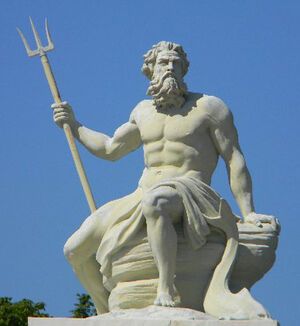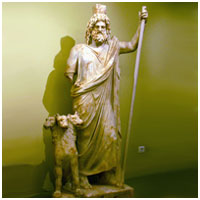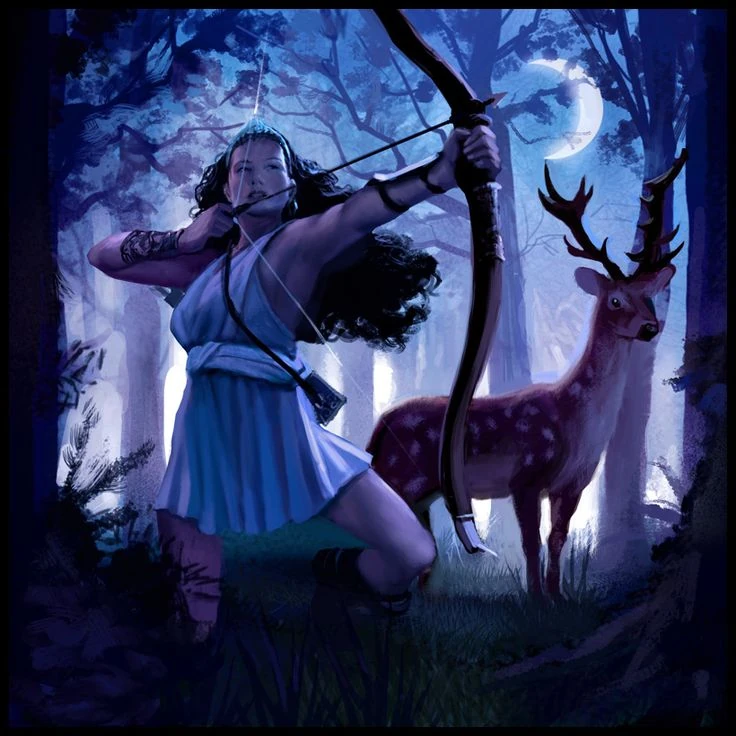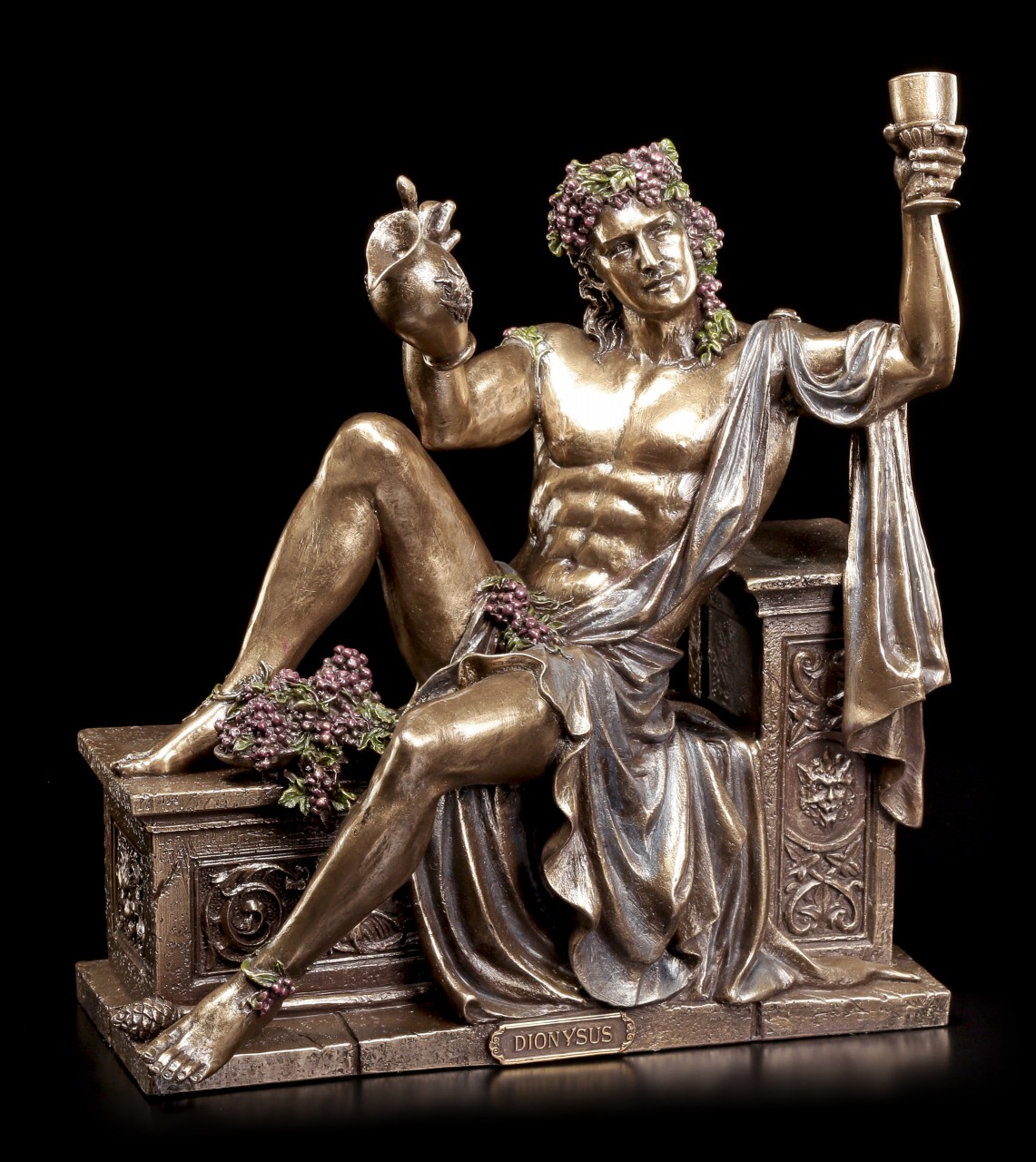The Olympian Gods
In Greek mythology, the Olympians were the major deities who Ancient
Greeks believed in. The Olympians were twelve and comprised of
Zeus, Hera,
Poseidon, Demeter,
Athena, Apollo,
Artemis, Ares,
Aphrodite,
Hephaestus,
Hermes
and either
Hestia
or
Dionysus. Their name, Olympians, originates
from Mount Olympus, which was their place of residence; therefore,
although sometimes
Hades
and
Persephone
were included in the Olympians, they should be excluded in the sense
that they lived in the underworld.
The Twelve Olympians came into power after dethroning the Titans, which
resulted after the end of the great war between the Olympians and the
Titans, called the Titanomachy.
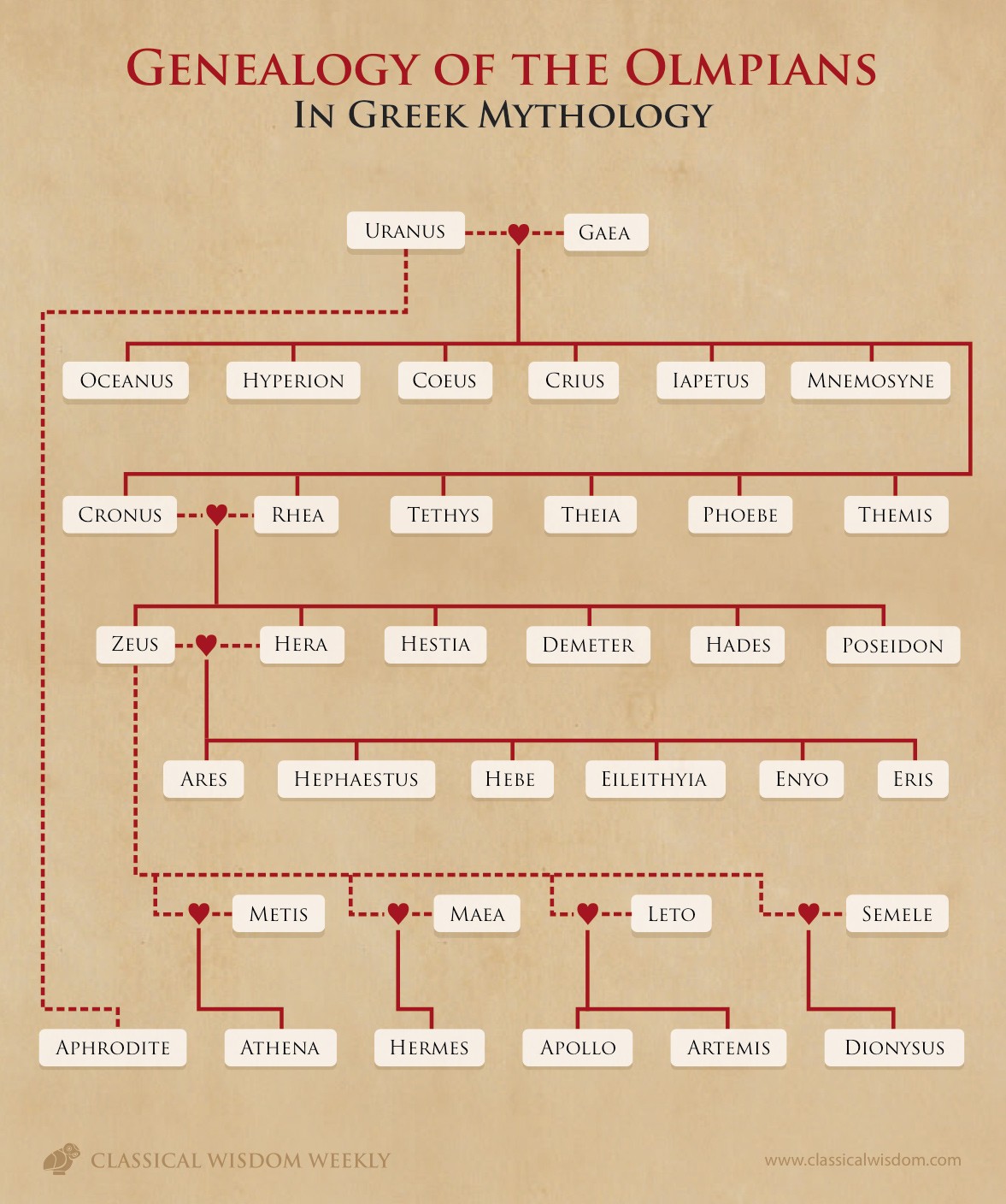
The Olympians family tree
All of the Greek gods were descendants of Uranus (Sky) and Gaia
(Earth). Together Uranus and Gaia had Cronus and Rhea (Titans).
Cronus and Rhea had 6 children together
Zeus, Hera,
Demeter,
Poseidon,
Hades and
Hestia (note that Hades and Hestia were not
Olympians). Four of these children Zeus, Hera, Demeter and Poseidon
became the first generation of Olympian gods.
Aphrodite was also a first generation
Olympian, however she was born from Uranus
Seven of Zeus and Hera’s children (both together and separately)
became the second generation of Olympians.
While the gods relationships and history is a complex web of love,
disagreements, betrayal, violence and affairs is confusing to say the
least.
Unlike other gods that are all knowing and the pinnacle of human
perfection, the Greek gods were a representation of humanity at its
best and at its worst.
The Big 3 Gods
Some of the other Olympian Gods
Coded by Tiffany Schilling
